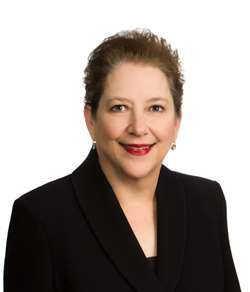Spotlighting Health's Female Leaders: Yvonne Puig
Please introduce yourself, including your role within your organisation, and a short overview of your career path.
My current role as Norton Rose Fulbright’s US Chief Integration Partner of Life Sciences and Healthcare involves commercial and healthcare litigation, antitrust, regulatory and compliance advice, crisis and risk management, and products liability. I am the past Head of Life Sciences and Healthcare for the United States. I advise governing boards on a variety of compliance topics and have extensive experience in a variety of health industry regulatory and compliance matters, credentialing, peer review, due process hearings, government regulatory investigations, The Joint Commission accreditation and compliance. A steadfast advocate for education, I frequently write and speak on legal issues regarding social media, board governance, healthcare and life sciences.
Following graduation from University of Texas, my career began at a time when there were few female litigators in private law firms. Once joining a firm that wanted to “give me a chance” in case clients were not ready for women litigators/barristers, I worked to become a trusted advisor to the city’s public hospital and private area hospitals alike, and healthcare entities throughout the State of Texas and the United States. After moving to Austin and joining Norton Rose Fulbright, my career continued to advance to a wider national and global stage. I have expanded the depth and scope of my HeathTech and healthcare practice and continued to zealously represent my clients.
"I have a motto, that is, be your own North Star."
What has been the biggest leadership lesson in your career?
I had to work hard to prove myself in male-dominated civil litigation venues, which taught me determination, both in my career and in a courtroom. The most important lesson is to dedicate yourself to what matters. There is so much advice to follow a certain path, to “lean in” or not. Our lives, passions and careers are not trendy. You must decide what works best for you, and chart your own course. I have a motto, that is, be your own North Star. While I have had many twists and turns over the years, whether unexpected cases, challenges, opportunities, I have never lost sight of my core beliefs.
How do you make sure your work is inclusive of others?
My intentions and goals as a litigator in the healthcare industry have always been to be a proponent for the public and an advocate for equity. By 1993, I had been inducted as an Advocate member of the American Board of Trial Advocates (ABOTA), an invitation-only national professional association, as the first female inducted into a local Chapter of ABOTA, and later achieved Master member and Faculty status. The mission of ABOTA furthers the goal of effective representation for all and efficient administration of justice in litigation, while its members must exhibit the virtues of civility, integrity, professionalism and high ethical standards.
As one of the Founders of the Center for Women in the Law at the University of Texas at Austin, I promote the advancement of women lawyers at every stage of practice. We advocate equity, addresses biases and stereotypes. The center is a national premier educational institution devoted to the success of the entire spectrum of women in law. The continued support of women in law benefits the legal profession as a whole by embracing impartiality and justice for all. We are an impetus for systemic change in the legal profession and diversity, equity, and inclusion.
"With patience, strategy and perseverance, any crisis, from minor proportions to those of significant risk, will eventually abate and become another teaching tool to use for growth and self-improvement in future matters."
What advice would you share with the female HealthTech leaders of tomorrow?
Working as a team with your organisation and peers allows you to both ask for and give support during challenging periods, which often enriches your perspective. I aspire to be a better person and lawyer tomorrow than I am today, and collaborating to make real and meaningful change contributes to that evolution. The key is to build relationships and networks that support women, and cultivate a pipeline of advocates and sponsors. Do not compromise your strong values or shy away from a challenge if you are doing what is right. I do my best to serve as an example of civility within the life sciences and health law profession and work diligently to craft precise, measured responses for governing boards, the media or opposing counsel. With patience, strategy and perseverance, any crisis, from minor proportions to those of significant risk, will eventually abate and become another teaching tool to use for growth and self-improvement in future matters.
What advice would you share with those who want to support the female HealthTech leaders of tomorrow?
By analogy to the legal profession, it is imperative to continually foster an environment of learning and to mentor individuals at every stage of their career - law student, lawyer, risk manager or general counsel. It is no different for future women HealthTech leaders, who need encouragement all along their career pathways - to help pave the way for the advancement of women in the law and HealthTech. I am committed to sharing my healthcare knowledge and teaching others from my past experiences in hopes they will have an impact in the healthcare industry, and be a catalyst for change and process improvement.
Invest in relationships, as all around you there are future leaders in the industry, the workplace and your community. Share your knowledge and experiences by teaching, writing, and thought leadership. Do not be a bystander, you must be a champion for those around you, who need encouragement to advance and grow. Invest your time and talent into organisations that reflect your personal mission statement.


Yvonne K. Puig, Chief Integration Partner, Life Sciences and Healthcare, United States, Norton Rose Fulbright US LLP



